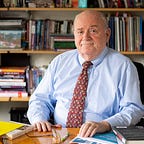Class of 2020 Will Suffer Permanent Economic Scars From COVID-19
By Anthony P. Carnevale and Nicole Smith
Every year, commencement ceremonies across the country honor college students for their years of hard work and, for most, mark the passage into adulthood and the workforce. This year, however, the postponement or cancellation of commencement ceremonies for 2020 graduates foreshadows the lifelong hardships they are about to endure.
New graduates are likely to become the victims of “scarring,” in which their career and lifetime earnings are damaged because they’re entering the workforce during tough economic times. In a recession, there’s a good chance that the only job offers they receive will entail work outside their major and have below-average wages. Economists estimate an initial 6 to 7 percent drop in wages for every 1 percent increase in the unemployment rate. This could affect graduates’ lifetime earnings total because their pay increases as well as their wages for subsequent jobs tend to build off the lower entry salary. Even 15 years later, wages are estimated to be 2.5 percent lower than if graduates had entered the workforce in better economic times.
Even graduates who plan to accept their first job offer may still have to wait through the inevitable lag between the return to economic activity and the return of jobs. During the last recession, GDP growth returned after 18 months, but employment growth lagged for seven more months. In fact, the last three recessions were followed by jobless recoveries. After the coronavirus pandemic subsides, businesses are once again likely to be reluctant to hire new employees, choosing instead to meet growing demand by giving overtime hours to their existing staff.
For the class of 2020, the immediate future is bleak. One strategy to avoid scarring is to hold off on accepting the first job offer. But delaying employment makes it challenging to pay rent and other bills. Where possible, students should attempt to weather the storm by continuing their education, adding additional credentials, licenses, or certifications to their resume. Of course, starting an entirely new program means taking on additional debt. As long as the program of study is in a high-growth, high-wage, high-demand field, however, during a recession the benefit usually outweighs the cost.
Students continuing their studies during this recession should not change their occupational field. After the last recession, the jobs outlook differed markedly according to workers’ academic major because there was a differential demand for credentials. For example, the unemployment rate of architects was triple that of engineers. But there hasn’t been a structural shift in today’s economy to suggest that college students should change their program of study as they prepare to enter the labor market.
Our best advice for graduating students is to wait to accept a job offer and consider going back to school in the meantime. Of course, that’s not an option for everyone facing these challenges. Scarring disproportionately affects first-generation and low-income students who may need a job to make ends meet. Furthermore, not everyone can stay in school indefinitely. At some point — especially if the crisis continues to worsen — the class of 2020 will need to enter the workforce.
Economist and New York Times columnist Paul Krugman aptly compared the COVID-19 recession to a medically induced coma. The loss of jobs will be swift, vast, and dramatic, but jobs will eventually return. This year’s graduating class faces enormous uncertainty, but there is hope that a strong reopening of the economy will improve their chances of getting back on track.
Dr. Carnevale is Director and Research Professor and Dr. Smith is Chief Economist and Research Professor at the Georgetown University Center on Education and the Workforce. CEW is an independent, nonprofit research and policy institute affiliated with the Georgetown McCourt School of Public Policy that studies the link between education, career qualifications, and workforce demands.
Follow the Georgetown University Center on Education and the Workforce on Twitter (@GeorgetownCEW), LinkedIn, YouTube, and Facebook.
